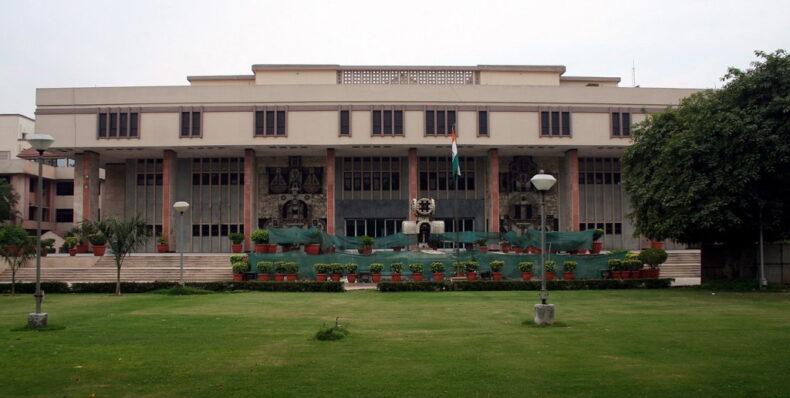Delhi HC Bench Delivers Split Verdict on Criminalizing Marital Rape. In a divided decision on petitions seeking to make marital rape a criminal offense, the Delhi High Court on Wednesday upheld the constitutional right to marriage.

Justice Rajiv Shakdher and Justice Hari Shankar were unable to reach an agreement on the legality of Section 275 of the Indian Penal Code (IPC), which recognizes sex performed without the permission of the woman and against her will by her husband as an exemption to the offense of adultery.
A charge of rape against the husband for having non-consensual sexual relations with his wife cannot be brought against him in such circumstances because of the existing exemption to the rape statute.
While Justice Shakdher found Exception 2 to Section 375 of the Indian Penal Code to be unconstitutional, Justice Hari Shankar did not find anything illegal in the provision.
As Justice Shankar put it, “there is no foundation to prove that the challenged exemption breaches Articles 14, 19, or 21…it is founded on intelligible differentia,” and hence the appeal cannot be supported.
Following the delivery of their findings, the two judges awarded certificates of appeal to the parties, allowing them to bring their case to the Supreme Court since it featured significant legal issues.
The Delhi High Court on February 21 reserved its decision on petitions seeking the criminalization of marital rape, even though the Centre has said that it would only be able to articulate its position on the sensitive topic after consulting with states and other interested parties.

It had declined to give the Centre any more time to clarify its position on the matter, citing security concerns.
Solicitor General Tushar Mehta had urged that the case be adjourned till the requisite inputs had been obtained, citing a notification that had been issued to all states and other stakeholders seeking their opinions and ideas on the subject. Delhi HC Bench Delivers Split Verdict on Criminalizing Marital Rape is a very big problem.
The Centre stated that criminalizing marital rape would have far-reaching socio-legal ramifications and that a thorough consultation process with numerous stakeholders, including state governments, would be required before such a move could be made.
After giving the Centre seven weeks to complete its consultations on February 7, the Bench reserved its decision, stating that it was not feasible to postpone a continuing issue since there was no precise date by which the consultations would be completed.
In the hearing on petitions brought by the RIT Foundation and three others seeking to criminalize marital rape, the court said the court cannot just sit back and take no action when individuals express dissatisfaction with a certain statute.
The legality of exception 2 to Section 375 of the Indian Penal Code was challenged by the petitioners on the grounds that it discriminated against women who had been raped by their husbands.
Rape, according to Section 375 of the Indian Penal Code, is defined as sexual contact with a woman without her permission and against her will. However, under the exemption to Section 375, sexual intercourse between a man and his wife who is 15 or older is not considered rape, even if it is done without her permission and against her will.
However, in October 2017, the Supreme Court determined that having sexual relations with one’s underage bride constituted rape. It weakened the exemption to Section 375 of the Indian Penal Code, which said that sexual contact between a man and his wife who is not under the age of 15 did not constitute rape.
READ MORE:-https://tdznkwjt9mxt6p1p8657.cleaver.live/wp-admin/post.php?post=41417&action=edit













